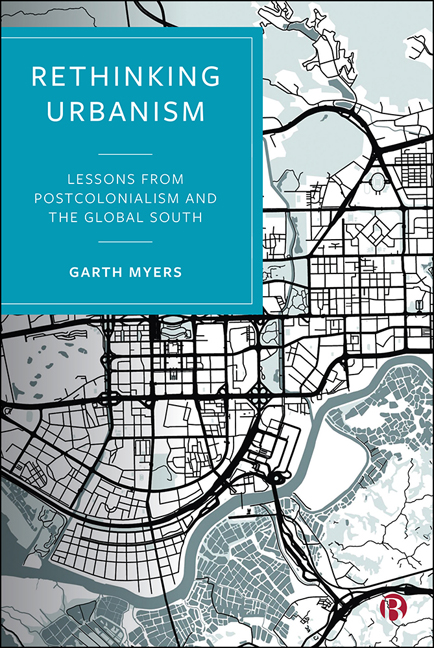Book contents
- Frontmatter
- Dedication
- Contents
- List of Figures
- List of Acronyms
- Glossary of Foreign Terms
- Acknowledgments
- Preface
- Introduction: Rethinking Urbanism from the South
- 1 Southern Processes of Planetary Urbanization in Hartford
- 2 Villages in the City: Patterns of Urbanization in the Pearl River Delta, Dakar, and Zanzibar
- 3 The Useful and Ornamental Landscapes of British (Post)colonialism
- 4 Submarine Urbanism: Cities People Make in ‘the Here and the Elsewhere’
- 5 ‘The Whole World Is Made in China’: Products and Infrastructures of Dis/connection
- 6 Urban Politics and Policy in a Southern Urban Planet
- Epilogue
- References
- Index
5 - ‘The Whole World Is Made in China’: Products and Infrastructures of Dis/connection
Published online by Cambridge University Press: 03 March 2021
- Frontmatter
- Dedication
- Contents
- List of Figures
- List of Acronyms
- Glossary of Foreign Terms
- Acknowledgments
- Preface
- Introduction: Rethinking Urbanism from the South
- 1 Southern Processes of Planetary Urbanization in Hartford
- 2 Villages in the City: Patterns of Urbanization in the Pearl River Delta, Dakar, and Zanzibar
- 3 The Useful and Ornamental Landscapes of British (Post)colonialism
- 4 Submarine Urbanism: Cities People Make in ‘the Here and the Elsewhere’
- 5 ‘The Whole World Is Made in China’: Products and Infrastructures of Dis/connection
- 6 Urban Politics and Policy in a Southern Urban Planet
- Epilogue
- References
- Index
Summary
Introduction
In June 2016, I was standing with a dozen US college students and colleagues on a street corner in Xiaobei, the ‘Chocolate City’ of Guangzhou, known for its African traders (Castillo 2014). My colleague, Xiangming Chen, and I were conversing with a Nigerian businessman, who told us he had come to Guangzhou to source molds for making plastic bottles for a Lagos water-bottling factory. We asked him what impressions he had of Guangzhou, as well as of Chinese investors and goods in Africa. He said, ‘there is good China and bad China. Many African countries get bad China and the West gets good China.’ Whether good or bad, he concluded, the reality is that ‘the whole world is made in China’.
This chapter focuses on this ‘made’ world, and specifically the urban world produced by the networks and interconnections of China's ‘go West/go global’ strategy and ‘Belt and Road’ initiative (Chen 2018), emphasizing urban sub-Saharan Africa. The concentration lies with infrastructure. Airports, seaports, railroads, highways, oil and gas pipelines, drainage networks, mining facilities, agri-business farmfactories, new cities, neighborhoods or housing developments, manufacturing factories, stadiums, and other infrastructure projects comprise the majority of investments from China in Africa, the rest of Asia, the Caribbean, and Latin America (Xue et al. 2019). Chinese infrastructure investments are increasingly significant in the global North. By 2018, Cosco Shipping Ports and China Merchants Port Holdings, two major Chinese firms, controlled one fourth to one half of shipping in and out of Rotterdam, Antwerp, Hamburg, and Piraeus – four of Europe's seven largest seaports (Huang 2018). As of 2019, new trains for Boston's subway and surface rail network were produced by a Chinese firm in Springfield, Massachusetts. Chinese investments in other case study cities of the book – Port of Spain and Hartford, especially – are also becoming more significant. The Shanghai Construction Company built the performing arts center dominating the southern edge of Port of Spain's Queen's Park Savannah. A Chinese state-owned enterprise redeveloped Port of Spain's port (Inter-American Dialogue 2018). The New York-and China-based financial-technology firm Ideanomics purchased the University of Connecticut's former West Hartford campus in 2018 to build a US $283 million ‘Fintech Village’ there (Lurye 2018).
- Type
- Chapter
- Information
- Rethinking UrbanismLessons from Postcolonialism and the Global South, pp. 131 - 154Publisher: Bristol University PressPrint publication year: 2020



